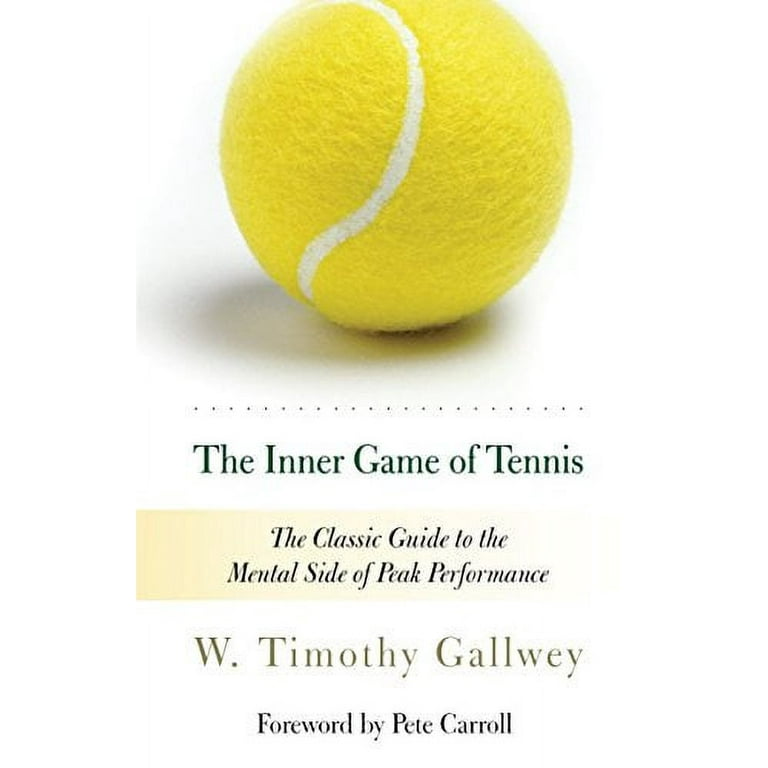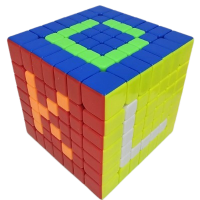The Inner Game of Tennis reveals how to relax and focus your mind for peak performance, a lesson that extends far beyond the tennis court. Timothy teaches the massively underutilized skill of nonjudgemental awareness, described as the ability to observe what is happening without feeling the need to have an opinion about it. This helps quiet the mind and encourages the extremely focused state needed for peak performance. This book has greatly helped me observe more and think less, which often brings me clarity sooner.
You should read this book if you…
- struggle with slowing your racing mind
- seek to improve performance on tasks that require preparation
- always default to working harder when facing increasingly challenging situations
Additional Information
Year Published: 1974
Book Ranking (from 1-10): 8 – Very Good – In depth insights on a specific topic
Ease of Read (from 1-5): 2 – Quick read
Key Highlights
- The player of the inner game comes to value the art of relaxed concentration above all other skills; he discovers a true basis for self- confidence; and he learns that the secret to winning any game lies in not trying too hard
- Obviously, the “I” and the “myself” are separate entities or there would be no conversation, so one could say that within each player there are two “selves.” One, the “I,” seems to give instructions; the other, “myself,” seems to perform the action. Then “I” returns with an evaluation of the action. For clarity let’s call the “teller” Self 1 and the “doer” Self 2. The key to better tennis— or better anything— lies in improving the relationship between the conscious teller, Self 1, and the natural capabilities of Self 2
- In short, “getting it together” requires slowing the mind. Quieting the mind means less thinking, calculating, judging, worrying, fearing, hoping, trying, regretting, controlling, jittering or distracting. The mind is still when it is totally here and now in perfect oneness with the action and the actor. It is the purpose of the Inner Game to increase the frequency and the duration of these moments, quieting the mind by degrees and realizing thereby a continual expansion of our capacity to learn and perform
- THE FIRST INNER SKILL to be developed in the Inner Game is that of nonjudgmental awareness. When we “unlearn” judgment we discover, usually with some surprise, that we don’t need the motivation of a reformer to change our “bad” habits. We may simply need to be more aware
- But words can only represent actions, ideas and experiences. Language is not the action, and at best can only hint at the subtlety and complexity contained in the stroke. Although the instruction thus conceived can now be stored in the part of the mind that remembers language, it must be acknowledged that remembering the instruction is not the same as remembering the stroke itself
- Why is it so easy for a child to pick up a foreign language? Primarily because he hasn’t learned how to interfere with his own natural, untaught learning process. The Inner Game way of learning is a return toward this childlike way
- THE INNER GAME WAY OF LEARNING: STEP 1 Observe Existing Behavior Nonjudgmentally, STEP 2 Picture Desired Outcome, STEP 3 Let It Happen! Trust Self 2, STEP 4 Nonjudgmental, Calm Observation of the Results Leading to Continuing Observation and Learning
- My experience over the years is that the best way to quiet the mind is not by telling it to shut up, or by arguing with it, or criticizing it for criticizing you. Fighting the mind does not work. What works best is learning to focus it
- As one achieves focus, the mind quiets. As the mind is kept in the present, it becomes calm. Focus means keeping the mind now and here. Relaxed concentration is the supreme art because no art can be achieved without it, while with it, much can be achieved
- Focus is not achieved by staring hard at something. It is not trying to force focus, nor does it mean thinking hard about something. Natural focus occurs when the mind is interested. When this occurs, the mind is drawn irresistibly toward the object (or subject) of interest. It is effortless and relaxed, not tense and overly controlled
- The surfer waits for the big wave because he values the challenge it presents. He values the obstacles the wave puts between him and his goal of riding the wave to the beach. Why? Because it is those very obstacles, the size and churning power of the wave, which draw from the surfer his greatest effort. It is only against the big waves that he is required to use all his skill, all his courage and concentration to overcome; only then can he realize the true limits of his capacities. At that point he often attains his peak. In other words, the more challenging the obstacle he faces, the greater the opportunity for the surfer to discover and extend his true potential
- Then is your opponent a friend or an enemy? He is a friend to the extent that he does his best to make things difficult for you. Only by playing the role of your enemy does he become your true friend. Only by competing with you does he in fact cooperate! No one wants to stand around on the court waiting for the big wave. In this use of competition it is the duty of your opponent to create the greatest possible difficulties for you, just as it is yours to try to create obstacles for him. Only by doing this do you give each other the opportunity to find out to what heights each can rise
- Each player tries his hardest to defeat the other, but in this use of competition it isn’t the other person we are defeating; it is simply a matter of overcoming the obstacles he presents. In true competition no person is defeated. Both players benefit by their efforts to overcome the obstacles presented by the other
- The cause of most stress can be summed up by the word attachment. Self 1 gets so dependent upon things, situations, people and concepts within its experience that when change occurs or seems about to occur, it feels threatened. Freedom from stress does not necessarily involve giving up anything, but rather being able to let go of anything, when necessary, and know that one will still be all right. It comes from being more independent— not necessarily more solitary, but more reliant on one’s own inner resources for stability

Discover more from The Broader Application
Subscribe to get the latest posts sent to your email.
